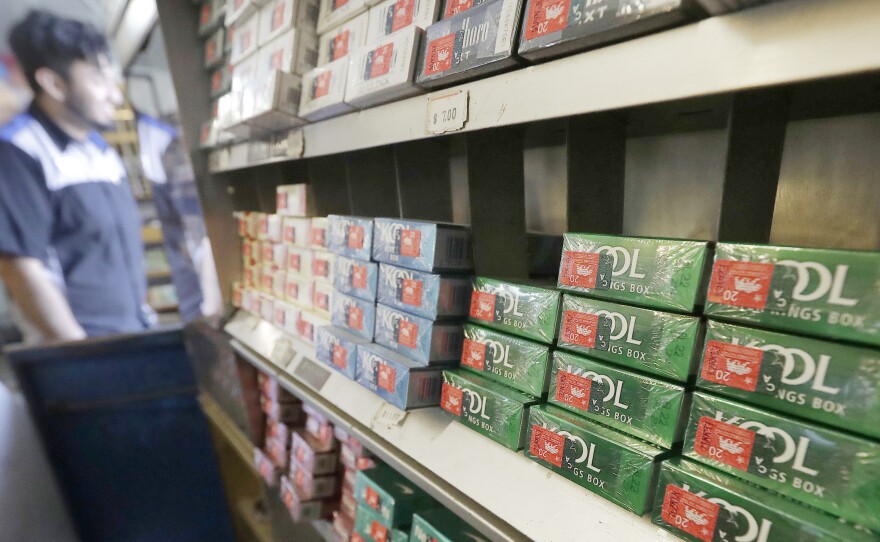The U.S. government on Thursday will lay out its long-awaited plan to ban menthol cigarettes and flavored cigars, which have taken a disproportionate toll on Black smokers and other minorities.
Food and Drug Administration Commissioner Robert Califf previewed the announcement in congressional testimony, saying the proposal would reduce disease and death by helping current smokers quit and stopping younger people from starting.
Menthol accounts for more than a third of cigarettes sold in the U.S, and the mint flavor is overwhelmingly favored by Black smokers and young people.
The FDA has attempted several times to get rid of menthol but faced pushback from Big Tobacco, members of Congress and competing political interests under both Democratic and Republican administrations.
The agency has been under legal pressure to issue a decision after anti-smoking and civil rights groups sued the FDA for “unreasonably” delaying action on earlier requests to ban menthol. Menthol’s cooling effect has been shown to mask the throat harshness of smoking, making it easier to start and harder to quit smoking.
The FDA will also seek to ban menthol and dozens of over sweet and fruity flavors from small cigars, which are increasingly popular with young people, especially Black teens.
The agency's proposals on both cigarettes and cigars will only be initial drafts. FDA will take comments before issuing final rules, which then could face years of legal challenges from tobacco companies.
Menthol is the only cigarette flavor that was not prohibited under the 2009 law that gave the FDA authority over tobacco products, an exemption negotiated by industry lobbyists. The act did, though, instruct the agency to continue to weigh a ban.
Last April, the Biden administration pledged to try to ban menthol within the year, responding in part to African American groups who say menthol has led to lower quit rates and higher rates of death among Black people. Menthols are used by 85% of Black smokers.
“Black folks die disproportionately of heart disease, lung cancer and stroke,” said Phillip Gardiner of the African American Tobacco Control Leadership Council. “Menthol cigarettes and flavored cigars are the main vectors of those diseases in the Black and brown communities, and have been for a long time.”
In 2020, Gardiner’s group and several others sued to compel the FDA to make a decision on a ban.
The FDA made several efforts to begin eliminating menthol under both the Obama and Trump administrations, but has never previously released a formal roadmap of how the process would work.
“This is the first time there’s been support from an administration,” said Mitch Zeller, who recently retired after nine years leading FDA’s tobacco center. “If these rules are finalized they become the law of the land and it becomes illegal for menthol cigarettes and flavored cigars to be sold.”
In recent weeks, dozens of interest groups — for and against the ban — met with Biden administration officials to try and influence the proposed rule, which would wipe out billions in tobacco sales.
For decades, tobacco companies focused menthol advertising and promotions in Black communities, sponsoring music festivals and neighborhood events. Industry documents released via litigation show companies viewed menthol cigarettes as a good “starter product” because they were more palatable to teens.
Menthol’s elimination would be a huge blow to tobacco companies, including Marlboro-maker Altria and Reynolds American, which sells the leading menthol brands, Newport and Kool. With the slow decline of smoking, tobacco companies have been diversifying into alternative products, including electronic cigarettes and tobacco pouches. But those ventures still account for a tiny slice of industry sales.
More than 12% of Americans smoke cigarettes, with rates roughly even between white and Black populations.





